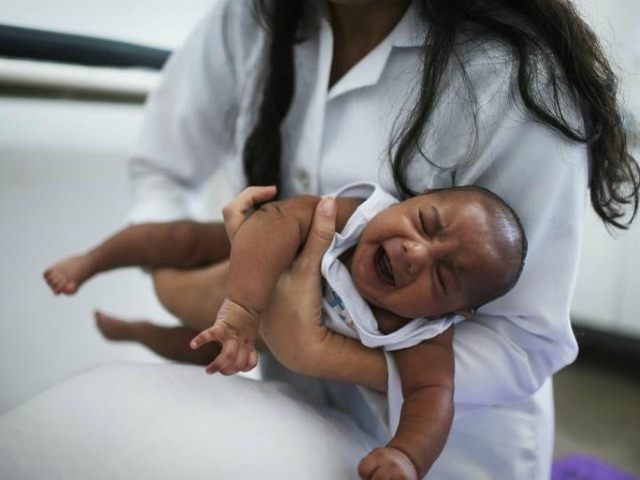A doctor in Brazil has discovered numerous microcephaly cases that predate the Zika outbreak.
Dr. Sandra Mattos found data on 100,000 newborns since 2012. At least 1,600 babies born in the last years had microcephaly or smaller-than-normal heads.
“We were very, very surprised,” stated Mattos. “Borderline cases seem to be present all along.”
CBC News reports:
Brazilian authorities set the criterion for microcephaly, a measurement of head size, at 32 centimetres for full-term births. Doctors were asked to report babies at or below that level for further investigation.
Mattos said the data analysis also confirmed the number of severe microcephaly cases increased starting in October or November of 2014.
Microcephaly occurs when the brain does not form properly during pregnancy or after birth. The CDC states rubella, toxoplasmosis, cytomegalovirus, severe malnutrition, alcohol, drugs, and toxic chemicals can cause microcephaly.
CDC director Tom Frieden said scientists found the Zika virus in the tissue of infants who died from microcephaly. He stopped short of claiming that Zika caused the birth defect.
Mattos told the World Health Organization that “other potential factors need to be considered” since 80% of the microcephaly babies live in northeast Brazil. The Colombian government confirmed 3,100 cases of pregnant women with Zika, but none of the babies have microcephaly.
Following the Zika outbreak, however, Brazil has documented more than 4,000 cases and is diagnosing an average of 200 cases a week. In 2015, the country tracked an excess of 2,400 cases, compared to the 147 in 2014.
Doctors reported 404 cases of microcephaly in newborns since November. They tied seventeen “to the Zika virus.” Fifteen of the 404 passed away, “with five linked to Zika.” Authorities are investigating 56 other deaths and 3,670 cases.
Yale University School of Public Health Professor Albert Ko claimed the cases of microcephaly in Brazil are just the start of concerns about birth defects linked to the Zika virus.
“It seems like microcephaly may just be the tip of the iceberg,” he stressed, adding:
The preliminary evidence is that [some] babies who don’t have microcephaly may also have neurological lesions or birth defects that are not as obvious as microcephaly. We’re really concerned because of Zika, but we need to rule out other causes of congenital infection to really make sure.
Microcephaly has received the most attention, but Ko found other problems with the infants.
“We’re seeing a spectrum. Many have fairly severe central nervous system lesions,” he explained. “There are also a lot of calcium deposits. … Those can cause seizures and cause impairment in terms of function for the brain.”
Brazilian authorities and scientists have advised women to delay pregnancy.
“It’s a very personal decision, but at this moment of uncertainty, if families can put off their pregnancy plans, that’s what we’re recommending,” stated Angela Rocha, the pediatric infectologist at Oswaldo Cruz Hospital in Brazil.

COMMENTS
Please let us know if you're having issues with commenting.